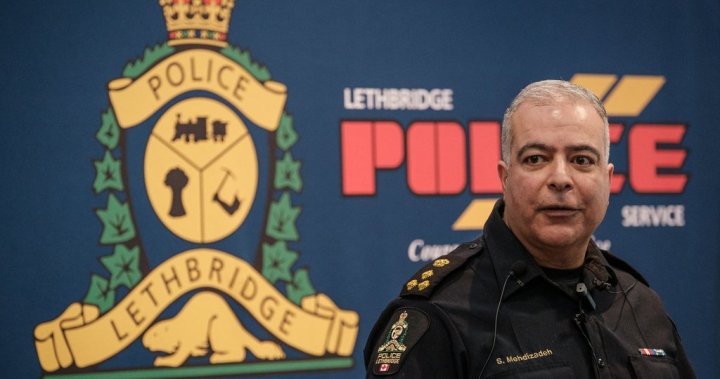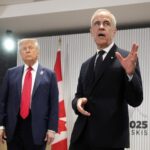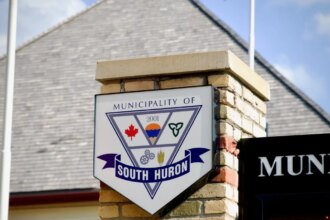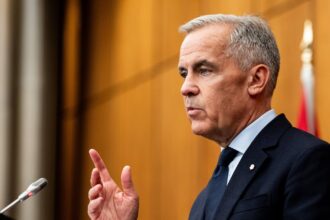Behind closed doors, the Lethbridge Police Commission has quietly concluded a years-long investigation into allegations that Police Chief Shahin Mehdizadeh violated COVID-19 public health restrictions during the height of the pandemic. The verdict, delivered after meticulous examination, clears the chief of wrongdoing in a case that has lingered in the shadows of Alberta’s third-largest city.
The investigation, prompted by complaints from within the police service itself, examined whether Chief Mehdizadeh had improperly entered Canada from the United States without following mandatory quarantine protocols in place at the time. These allegations surfaced during a period when border restrictions represented one of the most visible and contested aspects of Canada’s pandemic response.
“After thorough consideration of all available evidence and relevant circumstances, the Commission has determined that Chief Mehdizadeh did not contravene the applicable public health orders,” stated Commission Chair Rob vanSpronsen in a carefully worded statement released Tuesday.
The investigation’s conclusion brings resolution to questions that had persisted since early 2021, when the COVID-19 pandemic was at its peak and public health measures were being strictly enforced across the country. At that time, anyone entering Canada was required to quarantine for 14 days upon arrival, with exceptions only for essential workers under specific conditions.
According to sources familiar with the matter, the chief had traveled to the United States for what was described as work-related purposes. The controversy centered on whether his return to Canada and subsequent activities adhered to the exemption guidelines established for essential services personnel.
The Commission’s findings indicate that Mehdizadeh qualified for exemptions available to essential workers under the federal Quarantine Act provisions in place at the time. These exemptions allowed certain categories of workers, including law enforcement officials engaged in essential duties, to bypass standard isolation requirements when crossing the border.
“We understand the heightened sensitivity surrounding public health measures during that difficult period,” vanSpronsen noted. “The Commission took these allegations with the utmost seriousness and conducted a comprehensive review to ensure public confidence in our police leadership.”
The investigation comes during a period when public health measures related to COVID-19 have become increasingly politicized across Alberta and throughout Canada. Police services found themselves in the challenging position of enforcing restrictions that were, at times, met with significant public resistance.
Chief Mehdizadeh, who took leadership of the Lethbridge Police Service in 2020 amid the pandemic’s first wave, has maintained that all his travel was conducted in accordance with the regulations in place. Following the Commission’s decision, he expressed relief at the conclusion of the matter.
“I have always been committed to upholding both the letter and spirit of the law,” Mehdizadeh said in a brief statement. “I appreciate the Commission’s thorough review and am pleased to put this matter behind us so we can continue focusing on the safety and security of Lethbridge residents.”
The Lethbridge Police Association, which represents the service’s rank-and-file officers, acknowledged the Commission’s findings but declined further comment, indicating only that they “respect the process and outcome of the investigation.”
This investigation comes at a time when police services across Canada continue to navigate the complex aftermath of pandemic-era enforcement actions, which in some communities created tensions between law enforcement and the public. The Lethbridge service has not been immune to these challenges, with officers having been tasked with enforcing what were sometimes unpopular restrictions.
As communities across the country continue to process the social and institutional impacts of the pandemic, one question remains particularly relevant: How will the heightened scrutiny of public officials’ adherence to emergency measures shape accountability standards within law enforcement in the post-pandemic era?










